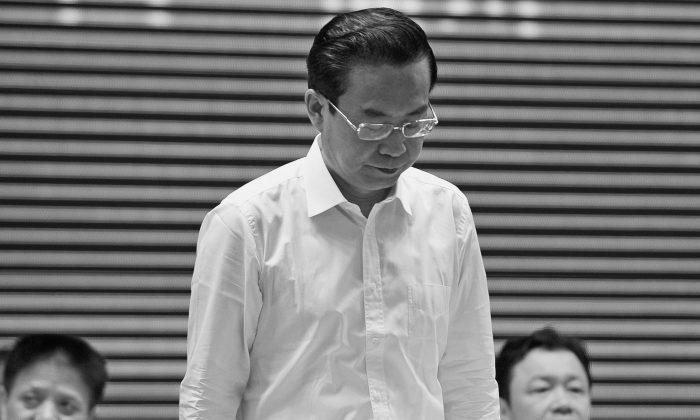Su Shulin, the former governor of Fujian Province, one of China’s wealthiest regions, was sentenced to 16 years in prison for taking bribes and “abuse of power,” according to Chinese state media Xinhua.
The Shanghai Second Intermediate People’s Court issued the sentence on July 26, along with imposing a 3 million yuan (about $442,000) fine.





